Alarm in Tbilisi: Warning or political signal? MEGOBARI and deep state
On May 7, 2025, the U.S. Embassy in Georgia issued a warning about the threat of explosions in three shopping malls in Tbilisi: East Point, Galleria Tbilisi, and Tbilisi Mall. No explosions have occurred so far. By the evening of the same day, the State Security Service of Georgia reacted sharply to the U.S. Embassy’s information, urging diplomatic missions not to spread “uncoordinated statements” regarding security issues.
The following day, the U.S. Embassy in Georgia withdrew its warning about potential explosives in the shopping malls of Tbilisi.
"Subsequent to the Alert sent by the U.S. Embassy on May 7, Georgian law enforcement advised Embassy Tbilisi last night that no explosive devices were located at any of the three malls mentioned the Alert message. The Regional Security Office has lifted its recommendation that Embassy staff avoid those locations," the embassy's statement reads.
The U.S. Embassy in Georgia also urges its citizens to follow local media reports and remain vigilant in their surroundings.
The U.S. Embassy’s "warning" and its subsequent withdrawal came at a highly significant moment for Georgia, when conditions were being created for the resumption of political confrontation in the country.
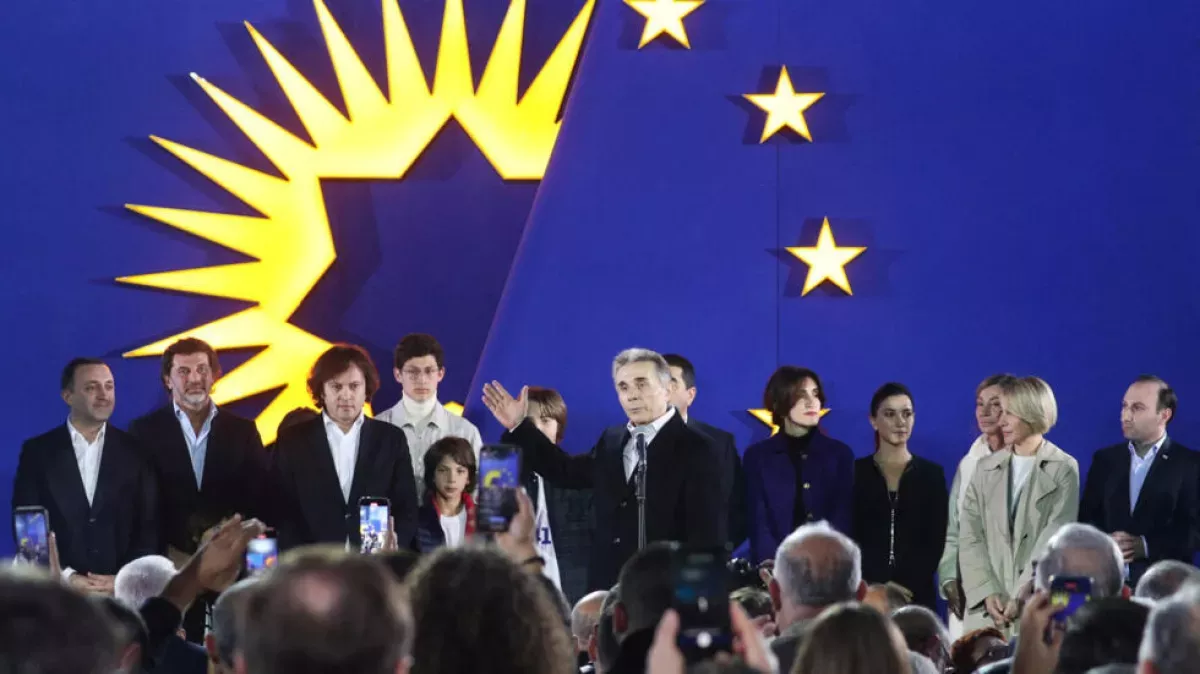
On one hand, the pro-Western opposition, whose protests had been marginalised, received a new "external impetus" for destabilising the situation in the form of the MEGOBARI act passed by the U.S. House of Representatives, directed against the ruling Georgian Dream party.
On the other hand, there was a consolidation of Georgian power: instead of the resigned chairman of the Georgian Dream and former prime minister Irakli Garibashvili, who announced his departure from politics, the head of the ruling party became the current prime minister Irakli Kobakhidze.
The change of leadership in the ruling party is a clear signal to external forces that the Georgian authorities have firmly chosen the path of strengthening sovereignty and are categorically opposed to "double games" and "behind-the-scenes deals" that would allow Georgia to be used in the interests of foreign powers.
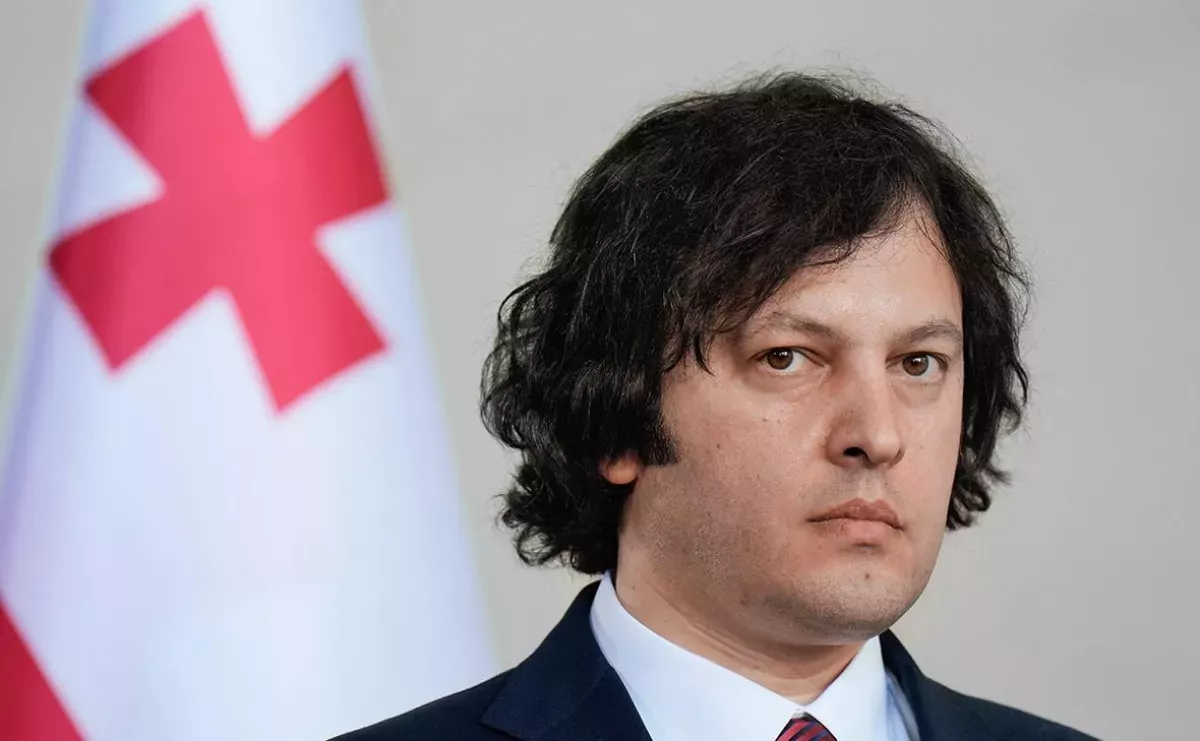
Irakli Kobakhidze is a politician willing to fight for his country's sovereignty, regardless of blackmail or even life threats. He has already received threats due to his uncompromising stance.
In May 2024, Kobakhidze revealed that during a phone conversation, one of the European Commissioners threatened him with the fate of Slovak Prime Minister Robert Fico, who had previously been the target of an assassination attempt, if Georgia passed the "foreign agents" law.
At the same time, Irakli Garibashvili, who left the ruling team, was clearly not opposed to "deal-making schemes" and "compromises" with those who wanted to use Georgia in foreign geopolitical games.
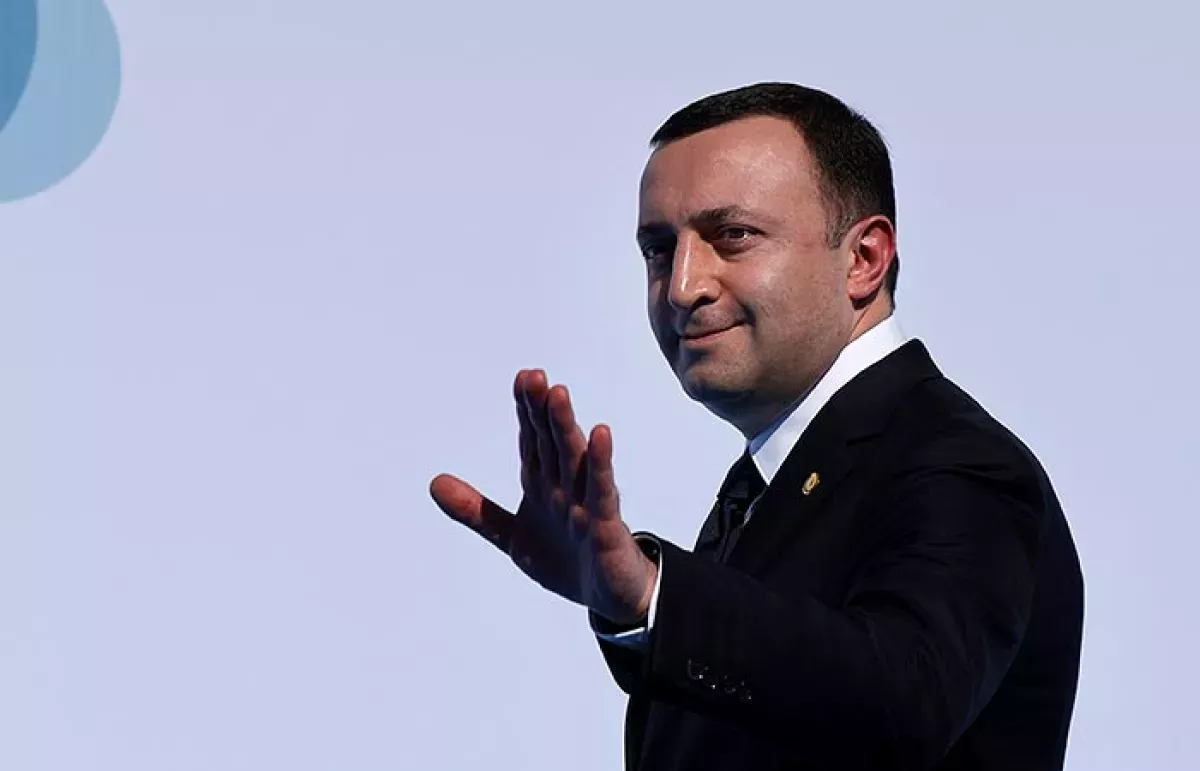
During Irakli Garibashvili's tenure as prime minister, a scandal erupted over the transit of French armoured vehicles through Georgia's territory to Armenia. Additionally, just before his resignation from the prime minister's post, Garibashvili signed an agreement on "strategic partnership" with Armenia, which was completely inconsistent with Georgia's national interests.
During the mass protests organised by the opposition at the end of 2024, which escalated into violence against the police and were only neutralised thanks to the competent work of law enforcement, Garibashvili was often pointed to as the Georgian Dream politician inclined to make concessions and engage in negotiations with the coup plotters.
After both the prime minister's post and the leadership of the ruling party passed into the hands of Irakli Kobakhidze, who is uncompromising when it comes to defending national interests, it became clear that efforts to force the current Georgian government into capitulation or a change of course through blackmail and pressure would no longer succeed.
It has long been clear to patriotically-minded Georgians that the goal of a change in power is not the "triumph of democracy," but the intention to create either a "second front" in Georgia or to "explode" the South Caucasus in some other way.
It seems that the forces initially planning a "Maidan" in Georgia are returning to the escalation tactic. The MEGOBARI act was pushed through the House of Representatives precisely to create an "external backdrop" for such destabilisation.
And it is entirely possible to ignite the situation from within with terrorist attacks and explosions that result in the deaths of innocent civilians, only to later accuse the Georgian Dream of being unable to withstand terrorism.

Recently, in Serbia, the opposition managed to bring nearly a million people to the streets, using as a pretext the accidental collapse of a railway station canopy in the city of Novi Sad. It is not hard to imagine the potential consequences of terrorist attacks in Tbilisi with casualties among the civilian population, especially if opposition propaganda and Western media focus on the "miscalculations" of the current Georgian government.
One cannot forget the geopolitical significance of Georgia's location and the immense temptations for certain foreign powers to destabilise it in order to initiate the "crash" of global development processes. The recent terrorist attack in Kashmir has already brought the two nuclear powers of South Asia—Pakistan and India—to the brink of war.
Who can guarantee that those trying to "explode" South Asia do not have similar plans to destabilise the South Caucasus in order to sever all transit routes in Eurasia through wars and conflicts?
It is known that attempts to destabilize the situation in Georgia, remove the "Georgian Dream" party, which defends national sovereignty, and bring a "pro-European" opposition to power (with the prospect of opening a "second front" of the Ukrainian war in Georgia) began even before Donald Trump was elected President of the United States.
The attempted coup in Georgia was supported by the previous administration of Joe Biden in the White House and the "deep state." By the way, the anti-Georgian MEGOBARI act was drafted even before Donald Trump’s election.
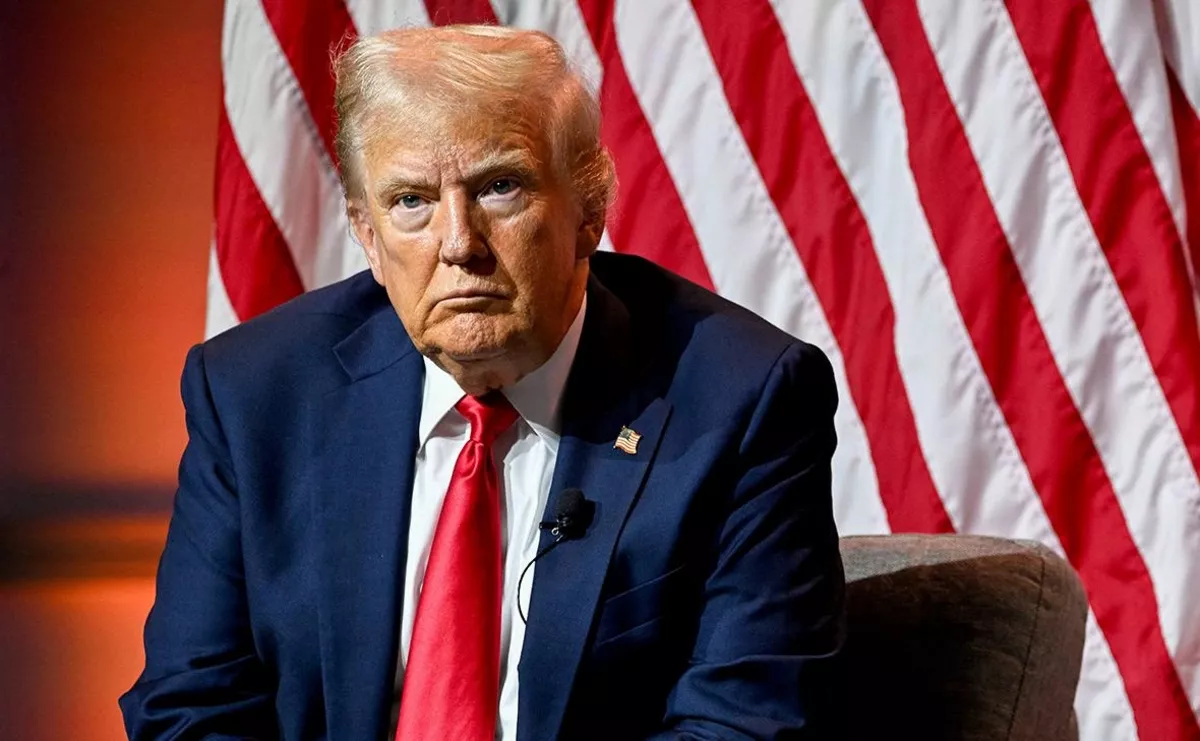
Despite the change of power in the White House, the inertia of the processes initiated by the "deep state" remained strong, including in relation to Georgia.
Georgian Prime Minister Irakli Kobakhidze, commenting on the MEGOBARI act passed by the U.S. House of Representatives, emphasised that he does not link the hostile act toward his country with Donald Trump's administration.
"The struggle between Trump and the deep state continues. When such a decision is made, it means that at this particular moment, the deep state has defeated the Trump administration. We witnessed this two days ago. We still remain optimistic that the Trump administration will defeat the deep state. If this happens, relations between Georgia and the U.S. will improve," said Irakli Kobakhidze.
In general, the adoption of the MEGOBARI act can be considered an ultimatum and a hostile message from the deep state to Georgia. "How can an act that is hostile to the Georgian people and the government elected by them from beginning to end be called 'friendly'?" stated Irakli Kobakhidze.
The question remains open — who was behind the subsequent "terror threat" warning from the U.S. Embassy in Georgia, almost immediately following the passage of the MEGOBARI act by the U.S. House of Representatives, and what purpose did it serve?
Was it a genuine warning of danger from the White House, or a sort of "message" from the same deep state to the Georgian authorities after the adoption of the MEGOBARI act, hinting at what could happen if the Georgian government continues to refuse to "surrender" the sovereignty of their country?
The administration of Donald Trump, with its current efforts to establish peace in Ukraine, clearly does not want to create another hotspot of war and instability in the South Caucasus.
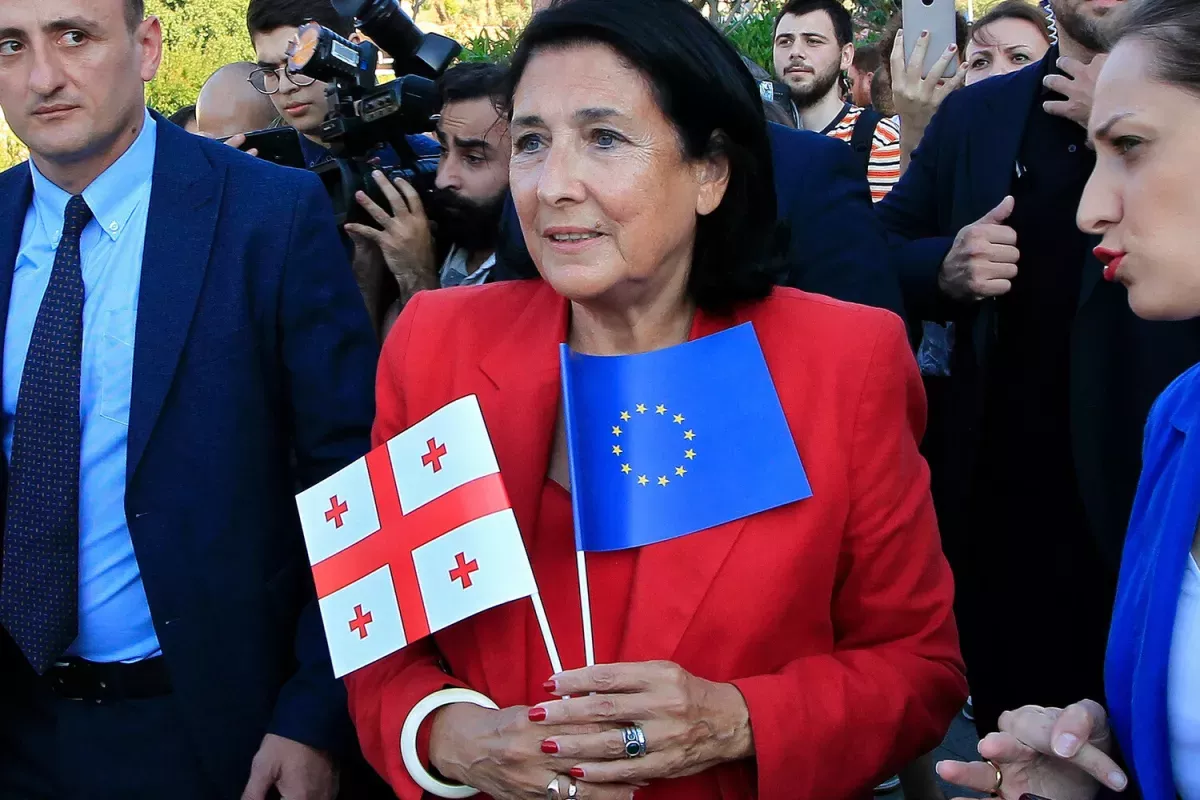
But there are forces for whom terrorism, instability, and war in Georgia are very much needed. Salome Zourabichvili, her French "patrons," and many within Georgia's pro-Western opposition are ready to lead the country into such a catastrophe. In these conditions, the current government in Georgia must increase its vigilance.
Vladimir Tskhvediani, Georgia, exclusively for Caliber.Az








